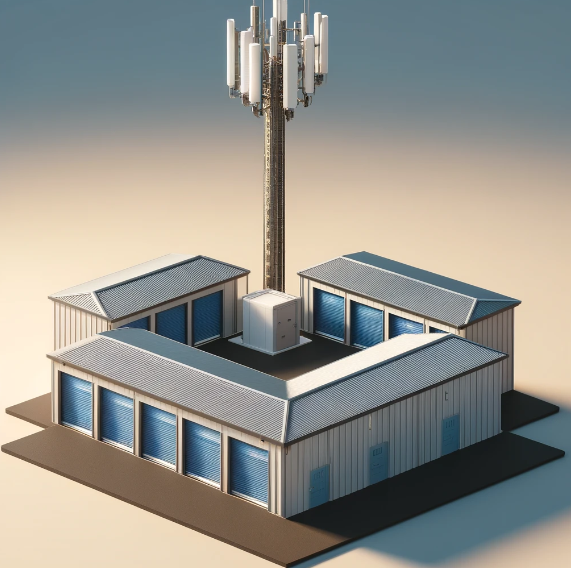Crown Castle:
TOWER COMPANY PROFILE: CROWN CASTLE (CCI)

Tower Company Profile: Crown Castle (CCI)
Founded in 1994 and headquartered in Houston, Crown Castle International (CCI) is the second largest cell tower company (aka wireless infrastructure operator) in the U.S. It owns just under 40,000 cell towers in the U.S., providing coverage to 98 of the top 100 markets. Crown Castle also serves most of Australia, where it owns and operates over 1,700 cell sites.
Contact Us
CROWN CASTLE FUNDAMENTALS
Cell Towers
CCI receives most of its revenue from leasing space on its towers to wireless carriers. On average, each of Crown Castle’s towers has 2.5 tenants. Approximately 74% of its revenue comes from the Big Three wireless carriers: Verizon, AT&T, and T-Mobile (who acquired Sprint).
Crown Castle has acquired these cell towers through acquisitions from wireless carriers like AT&T (9,700 towers), T-Mobile (7,200 towers), Bell Atlantic (now Verizon- 1,400 towers), and from tower companies like Global Signal (7,000+ towers).
Small Cells/Fiber
Crown Castle owns approximately 85,000 route miles of fiber, which is acquired in multiple acquisitions including FPL Fibernet, NextG Networks, NewPath Networks, Wilcon, and Sunesys. Crown Castle has deployed or acquired approximately 55,000 small cells/distributed antenna system nodes on this fiber and has another 60,000 small cells in the pipeline.
Leases
Crown also owns more than 2,300 third party leases, acquired from one of the third-party lease buyout companies. This means that Crown Castle controls the landowner rights under other tower company cell towers and under many wireless carrier cell sites.
HOW STEEL IN THE AIR WORKS WITH CROWN CASTLE LEASE HOLDERS
Over the past 20 years, we have assisted nearly 750 landowners who hold Crown Castle leases. Primarily, we help landowners evaluate the following:
- Crown Castle Proposed Cell Tower Lease: Crown Castle contacts a landowner to enter a lease to erect a tower on the property.
- Crown Castle Lease Buyout: Crown Castle offers to purchase the ground rights under their existing tower through a perpetual or fixed-term easement.
- Crown Castle Ground Lease Extension: Crown Castle proposes to extend their ground lease for 30-50 years. They typically offer a nominal signing bonus and will sometimes offer to increase the rent going forward. By asking for an expansion along with the offer to extend or buy out the lease, Crown hopes the landowner will not question whether the expansion has value in and of itself – in which case their rent costs would rise.
- Crown Castle Lease Expansions or Consent Requests: Crown Castle contacts their existing landowners to request the right to expand their lease footprint or to receive consent to sublease space on the tower to a wireless provider. Please contact us to discuss any questions you might have about a proposal you have received from Crown Castle, or to prepare yourself for proposals you are likely to receive in the near future. The initial discussion is free and once we talk to you and understand your needs, we can advise you as to what the costs would be should you choose to retain our services. Unlike our competitors, we offer the flexibility of either a fixed fee consulting service or a contingency – based service.
Please contact us to discuss any questions you might have about a proposal you have received from Crown Castle, or to prepare yourself for proposals you are likely to receive in the near future. The initial discussion is free and once we talk to you and understand your needs, we can advise you as to what the costs would be should you choose to retain our services. Unlike our competitors, we offer the flexibility of either a fixed fee consulting service or a contingency – based service.

Insider tips
Crown Castle has been known to agree to increase rental payments even in the case where leases are not set to expire for quite some time. Contact us for help negotiating favorable lease terms.
Industry dynamics (mergers, acquisitions and deployment of new technologies) play a large role in cell site lease agreements. Before accepting any lease termination as final, consult our partner, Cell Tower Attorney, to determine what rights, if any, the Lessee has to terminate your lease agreement.










